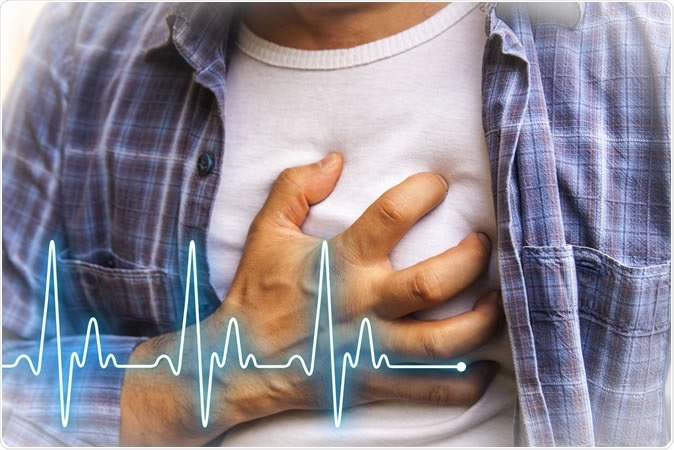Heart disease and stroke are the leading causes of death worldwide. Now, a team of researchers found that cancer-stricken patients are at a higher risk of dying from cardiovascular diseases (CVD). More than one in ten cancer patients don’t die from cancer itself, rather from heart and blood vessel conditions.

Image Credit: Hriana / Shutterstock
What more, the study, which was published in the European Heart Journal, revealed that more than half of patients with certain cancers such as those affecting the prostate, lungs, breast, thyroid, endometrium, larynx, and bowel, among others, are more likely to die from cardiovascular diseases.
In 2015 alone, more than 600,000 deaths were due to heart disease in the United States, while about 595,930 deaths were due to cancer. Across the globe, 17.7 million deaths were stemmed from cardiovascular diseases in 2015, while 8.8 million were due to cancer. But the study emphasizes that cancer patients and survivors have an increased risk of CVD, either from the toxicities of cancer treatment or shared lifestyles.
The team of researchers from Pennsylvania State University School of Medicine and Cancer Institute landed on their findings by analyzing data from over 3.2 million patients who had been diagnosed with cancer for over 40 years, from 1973 to 2012.
Increased risk of CVD-related deaths in the first year of treatment
They found that from the millions of patients studied, 38 percent had died from cancer and 11 percent from cardiovascular diseases, with a majority from heart disease. Among the deaths from CVD, as high as 76 percent were due to heart disease, and the risk of dying from CVD was highest in the first year of cancer diagnosis and among patients who are younger than 35 years old.
At the first year of cancer treatment, which includes radiation or chemotherapy, can explain some changes in the body. However, the rates of CVD-related deaths continued to be higher than the general population, hinting that having cancer increases the risk.
Close monitoring cancer patients and survivors
The team said that the increase in the numbers in patients surviving cancer should mean that more attention is needed on cardiovascular disease risk. Physicians should be more aware of monitoring these patients.
The patients who are at highest risk are those with cancers of the bladder, larynx, uterus, breast, bowel, and prostate.
“The risk of death from cardiovascular diseases is several times that of the general population in the first year of diagnosis; sometimes, this risk decreases, but for most, this risk increases as survivors are followed for ten years or more,” Dr Kathleen Sturgeon, an assistant professor in public health sciences, said.
“Increasing awareness of this risk may spur cancer survivors to implement healthy lifestyle behaviours that not only decrease their risk of cardiovascular disease but also the risk of cancer recurrence,” she added.
Reducing the risk
Physicians like oncologists and cardiologists should work together to control cardiovascular diseases more aggressively in cancer survivors. Many cancer survivors die from cardiovascular disease than from their initial cancers.
The team hopes that the study findings will increase awareness not only among the physicians but the patients, too. This way, early and more aggressive cardiovascular care will be initiated before complications arise.
The study, however, doesn’t tell why exactly cancer patients die from cardiovascular disease, and it should be further studied though the increased risk may be due to the cancer treatment, chemotherapy drugs, and lifestyle factors.
Cancer survivors should have a healthy lifestyle to reduce the risk of CVD-death and to improve the quality of life.
Journal reference:
Joerg Herrmann, From trends to transformation: where cardio-oncology is to make a difference, European Heart Journal, , ehz781, https://doi.org/10.1093/eurheartj/ehz781